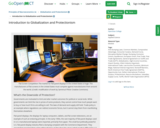
- Subject:
- Applied Science
- Material Type:
- Module
- Author:
- OpenStax College
- Date Added:
- 07/18/2021


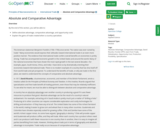
By the end of this section, you will be able to:
Define absolute advantage, comparative advantage, and opportunity costs
Explain the gains of trade created when a country specializes


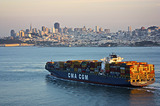
By the end of this section, you will be able to:Contrast traditional economies, command economies, and market economiesExplain gross domestic product (GDP)Assess the importance and effects of globalization

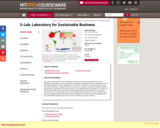
How can we translate real-world challenges into future business opportunities? How can individuals, organizations, and society learn and undergo change at the pace needed to stave off worsening problems? Today, organizations of all kinds--traditional manufacturing firms, those that extract resources, a huge variety of new start-ups, services, non-profits, and governmental organizations of all types, among many others--are tackling these very questions. For some, the massive challenges of moving towards sustainability offer real opportunities for new products and services, for reinventing old ones, or for solving problems in new ways. The course aims to provide participants with access and in-depth exposure to firms that are actively grappling with the sustainability-related issues through cases, readings and guest speakers.
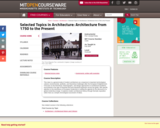
General study of modern architecture as a response to important technological, cultural, environmental, aesthetic, and theoretical challenges after the European Enlightenment. Focus on the theoretical, historiographic, and design approaches to architectural problems encountered in the age of industrial and post-industrial expansion across the globe, with specific attention to the dominance of European modernism in setting the agenda for the discourse of a global modernity at large. Explores modern architectural history through thematic exposition rather than as simple chronological succession of ideas.

The concept of globalization fosters the understanding of the interconnectedness of cultures and societies geographically wide apart; America, Europe, Asia, and Africa. Subject scans existing debates over globalization in four continents. Explores how globalization impacts everyday life in the First and Third World; how globalization leads to a common cosmopolitan culture; the emergence of a global youth culture; and religious, social, and political movements that challenge globalization. Materials examined include pop music, advertisements, film posters, and political cartoons. Topic for Spring 2003: Popular Culture in Japan. Taught in English.

The Empire Strikes back refers to the theoretical framework introduced to study texts and their recurrent themes. Theory explores the ways in which post-colonial texts have a problematic relationship with the colonizer's language. Explores strategies used to subvert and appropriate the pre-existing discourse of the Empire in order to give rise to a new form. Introduction to post-colonial literature from South Asia, as well as from the South Asian diaspora. Through study of novels by Rushdie, Ghosh, Seth, Roy, Desai, Ontaatdje, Suleri, Sidhwa, and Lahiri, students explore the phenomenon of the post-colonial writer's encounter with modernity. Examines how authors articulate recurrent themes of the post-colonial condition: migration and history, memory and desire, and rootlessness and hybridity. Taught in English. This subject aims to provide an overview of contemporary texts in regional languages in South Asian Literature and Cinema. We will cover major authors and film makers, writing from Bangladesh, India, Nepal, Pakistan and Sri Lanka. Within India, we will look at authors and directors working in different regional languages and as we examine their different socio-cultural, political and historical contexts we will attempt to understand what it means to study them under the all-unifying category of "South Asian Literature and Culture". Some of the major issues we shall explore include caste, gender, globalization and social change. We will end with exploring some of the newer, younger writers and directors and try to analyze some of the thematic and formal shifts in their work. Authors include Ashapurna Devi, Manto, Vijayan, Premchand, Mohanty, and Nasreen and film makers will include Adoor Gopalakrishnan, Satyajit Ray, Shyam Benegal, Aparna Sen and Rituporno Ghosh.
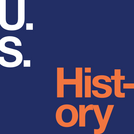
U.S. History is designed to meet the scope and sequence requirements of most introductory courses. The text provides a balanced approach to U.S. history, considering the people, events, and ideas that have shaped the United States from both the top down (politics, economics, diplomacy) and bottom up (eyewitness accounts, lived experience). U.S. History covers key forces that form the American experience, with particular attention to issues of race, class, and gender.Senior Contributing AuthorsP. Scott Corbett, Ventura CollegeVolker Janssen, California State University, FullertonJohn M. Lund, Keene State CollegeTodd Pfannestiel, Clarion UniversityPaul Vickery, Oral Roberts UniversitySylvie Waskiewicz

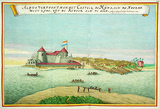
By the end of this section, you will be able to:Describe Portuguese exploration of the Atlantic and Spanish exploration of the Americas, and the importance of these voyages to the developing Atlantic WorldExplain the importance of Spanish exploration of the Americas in the expansion of Spain’s empire and the development of Spanish Renaissance culture

U.S. History is designed for a two-semester American history sequence. It is traditional in coverage, following a roughly chronological outline, and using a balanced approach that includes political, economic, social, and cultural developments. At the same time, the book includes a number of innovative and interactive features designed to enhance student learning. Instructors can also customize the book, adapting it to the approach that works best in their classroom.
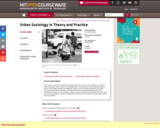
This course is intended to introduce graduate students to a set of core writings in the field of urban sociology. Topics include the changing nature of community, social inequality, political power, socio-spatial change, technological change, and the relationship between the built environment and human behavior. We examine the key theoretical paradigms that have constituted the field since its founding, assess how and why they have changed over time, and discuss the implications of these paradigmatic shifts for urban scholarship, social policy and the planning practice.
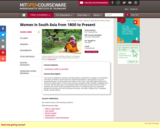
Exploration of the changes and continuities in the lives of South Asian women. Using gender as a lens, examine how politics of race, class, caste, and religion have affected women in South Asian countries, primarily in India, Pakistan, Bangladesh and Sri Lanka. Current debates within South Asian women's history illustrate the issues and problems that arise in re-writing the past from a gendered perspective. Primary documents, secondary readings, films, newspaper articles, and the Internet.
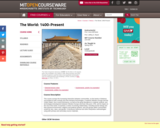
This course surveys the increasing interaction between communities, as the barrier of distance succumbed to both curiosity and new transport technologies. It explores Western Europe and the United States' rise to world dominance, as well as the great divergence in material, political, and technological development between Western Europe and East Asia post–1750, and its impact on the rest of the world. It examines a series of evolving relationships, including human beings and their physical environment; religious and political systems; and sub-groups within communities, sorted by race, class, and gender. It introduces historical and other interpretive methodologies using both primary and secondary source materials.
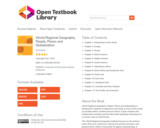
The discipline of geography bridges the social sciences with the physical sciences and can provide a
framework for understanding our world. By studying geography, we can begin to understand the
relationships and common factors that tie our human community together. The world is undergoing
globalization on a massive scale as a result of the rapid transfer of information and technology and
the growth of modes of transportation and communication. The more we understand our world, the
better prepared we will be to address the issues that confront our future. There are many approaches
to studying world geography. This textbook takes a regional approach and focuses on themes that
illustrate the globalization process, which in turn assists us in better understanding our global
community and its current affairs.